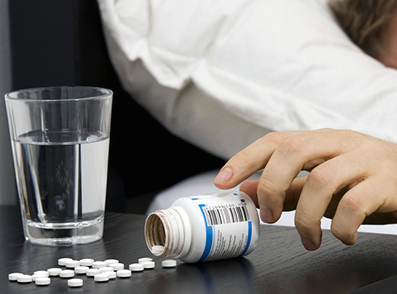 The U.S. Food and Drug Administration (FDA) has issued warning for the insomnia drug Lunesta (eszopiclone) based on evidence of next-day impairment of driving and other activities that require alertness. As a result, the FDA has decreased the recommended starting dose of Lunesta to 1 mg at bedtime.
The U.S. Food and Drug Administration (FDA) has issued warning for the insomnia drug Lunesta (eszopiclone) based on evidence of next-day impairment of driving and other activities that require alertness. As a result, the FDA has decreased the recommended starting dose of Lunesta to 1 mg at bedtime.
The dose change is based, in part, on findings from a study of 91 healthy adults ages 25 to 40. The study shows, compared to an inactive pill (placebo), Lunesta 3 mg was associated with severe next-morning psychomotor and memory impairment in both men and women 7.5 hours after taking the drug.
The study found that recommended doses can cause impairment to driving skills, memory, and coordination as long as 11 hours after the drug is taken. Despite these long-lasting effects, patients were often unaware they were impaired.
In a double-blind study of 91 healthy adults between 25 and 40 years old, the effects of Lunesta 3 mg on psychomotor function were assessed the following morning, between 7.5 and 11.5 hours after dosing. Measures included tests of psychomotor coordination that are correlated with the ability to maintain a motor vehicle in the driving lane, tests of working memory, and subjective perception of sedation and coordination. Compared with placebo, Lunesta 3 mg was associated with next-morning psychomotor and memory impairment that was most severe at 7.5 hours but still present and potentially clinically meaningful at 11.5 hours.
Despite these driving and other problems, patients were often unaware they were impaired. The new lower recommended starting dose of 1 mg at bedtime will result in less drug in the blood the next day.
Women and men are equally susceptible to impairment from Lunesta, so the recommended starting dose of 1 mg is the same for both. In their announcement the FDA cautions patients taking a 3 mg dose against driving or engaging in other activities that require complete mental alertness the day after use.
Taken at bedtime, the recommended starting dose of Lunesta (eszopiclone) has been decreased from 2 milligrams to 1 mg for both men and women. The 1 mg dose can be increased to 2 mg or 3 mg if needed, but the higher doses are more likely to result in next-day impairment of driving and other activities that require full alertness. Using lower doses means less drug will remain in the body in the morning hours.
“To help ensure patient safety, health care professionals should prescribe, and patients should take, the lowest dose of a sleep medicine that effectively treats their insomnia,” said Ellis Unger, M.D., director, Office of Drug Evaluation I in the FDA’s Center for Drug Evaluation and Research. “Recently, data from clinical trials and other types of studies have become available, which allowed the FDA to better characterize the risk of next-morning impairment with sleep drugs.”
Drowsiness is listed as a common side effect for all insomnia drugs, along with warnings that people may still feel drowsy the next day after taking one of these products. The FDA is continuing to evaluate the risk of impaired mental alertness with the entire class of sleep drugs, including over-the-counter drugs, and will update the public as new information becomes available.
In Jan. 2013, the FDA announced a dose reduction for sleep drugs that contain the active ingredient zolpidem, such as Ambien and Ambien CR, because of the risk of next morning impairment.
Health care professionals and the public can report side effects from the use of medicines to FDA’s MedWatch program.
Source: http://www.fda.gov/NewsEvents/Newsroom/PressAnnouncements/ucm397453.htm














